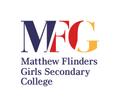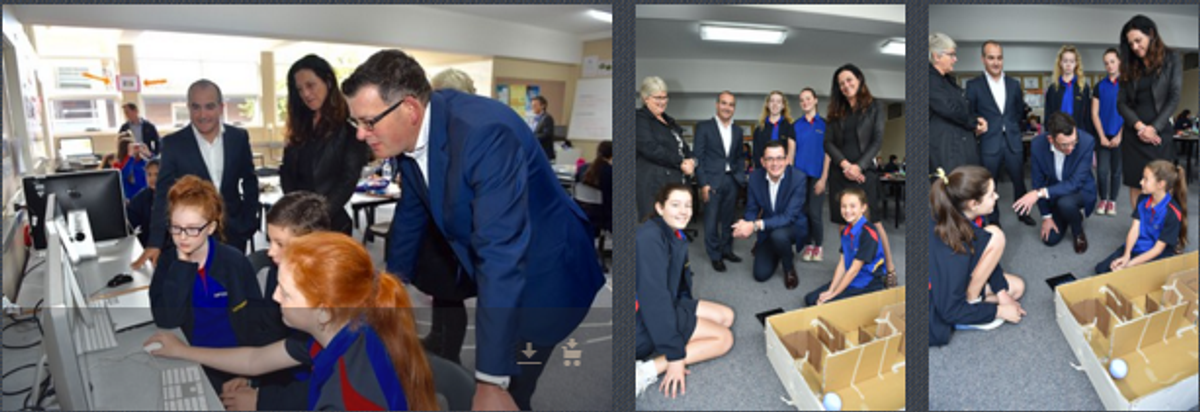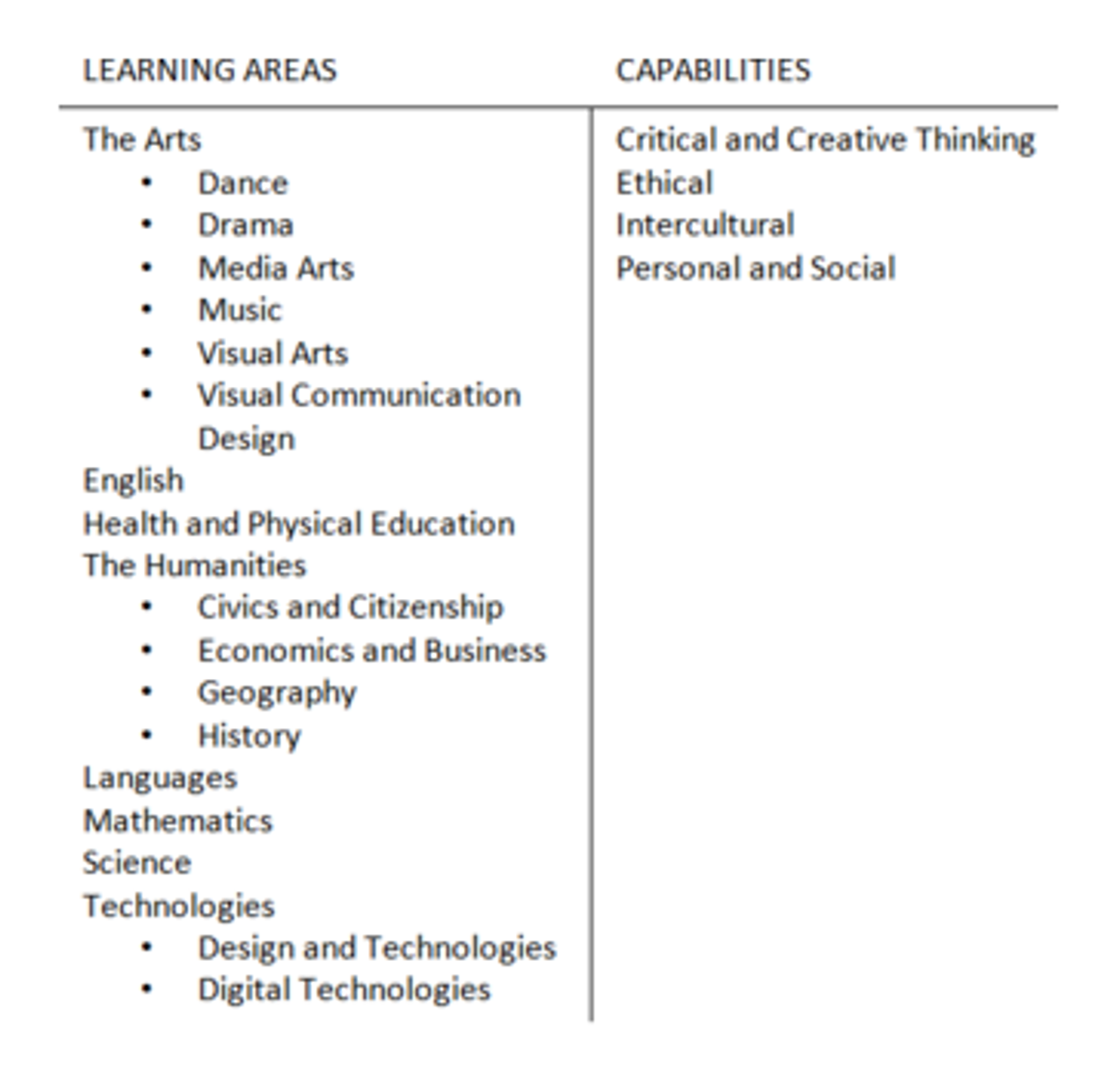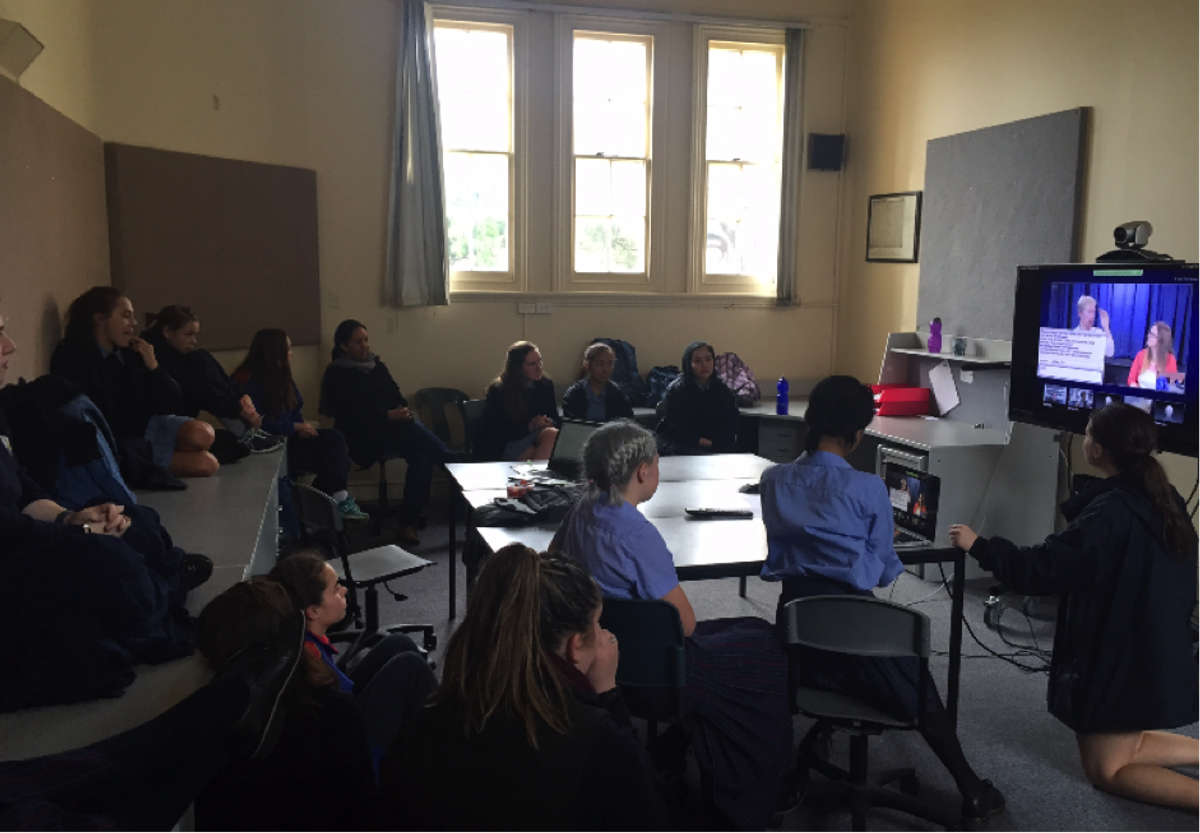Learning @MFG
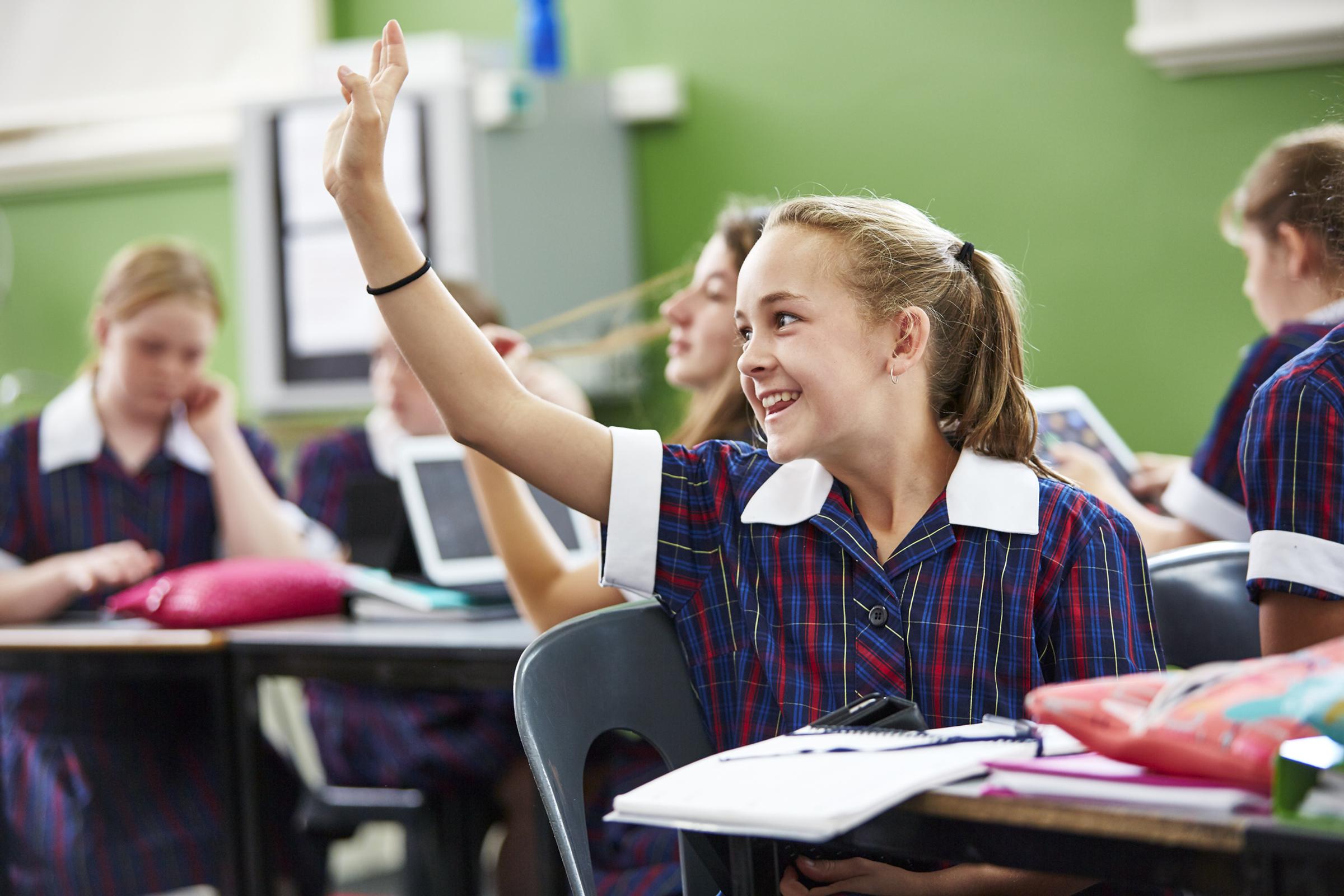
OUR NEW END OF SEMESTER REPORTS
Parents, carers and students will notice a different kind of Semester report this year. Schools can now report on student learning so that it suits their priorities and their school’s community needs.
Our priorities are to provide an end of Semester Report that:
- includes feedback on how your child performed on specific tasks during the Semester
- informs future learning
- is concise, specific and written in plain language
- is meaningful and useful for the student.
In the past, our end of Semester Reports have been summative. In other words, the report looked back on the Semester and described what your daughter achieved throughout the Semester on various assessment and learning tasks. However, this kind of report was written with a parent audience in mind and was broadly focused.
In 2016 we are using the Learning Task feature of Compass to provide your daughter with concise and specific cumulative feedback about the main assessment tasks, as well as future learning strategies and areas for improvement. We are referring to these assessments as Common Reportable Learning Tasks (CRLTs). These are the assessment tasks that are common across all classes. For example, the Year 9 Data Investigation Task is a CRLT that was completed by all Year 9 mainstream students.
The end of Semester Report is made up of those main CRLTs. This will vary between subjects – some subjects will have 2 to 3 CRLTs, others will have more depending on the time allocated to each subject.
Our teachers are using the following guiding questions to write their feedback comments in relation to each CRLT:
- What did the student achieve? What did the student do well?
- What did the student not do? What is missing?
- What can the student do to improve?
- What can the student do to make that improvement?
One of the innovative features of Compass is that it allows us to make the CRLT feedback visible to you at the time our students receive it, instead of parents and carers waiting until the end of the Semester. So all of the feedback, grading and assessment information the students receive is visible by parents and carers at the time it is given to the student via Compass. Gone are the days of having to wait, as a parent or carer, until the end of the Semester to find out how your child performed during the Semester and their academic progress.
YEAR 10 EXAMS
One of the best ways that we can prepare our Year 10 students for one of the big challenges relating to VCE (and beyond secondary school) is to give them experience with exams and teach them about the strategies that work best when revising and revisiting what they’ve learned. So this year, we are formally introducing exams at Year 10.
However, we decided that the best way of moving into Year 10 exams in a supportive and thoughtful way was to stagger the approach. So simply:
- Semester 1 has a focus on revision strategies in preparation for an in-class ‘exam style’ assessment and then feedback in class
- Semester 2 will involve a formal examination in each of the Year 10 subjects and some dedicated time after the exam for reflection and feedback.
Our Year 10 students will sit a formal exam in each of their subjects in Semester 2. However in Semester 1 they’ll be doing some targeted revision and their teachers will be working with them on revision strategies, a focused ‘exam-style’ assessment as well as helping them to understand the kinds of exams, and the types of questions, they will be challenged with in VCE, VCAL and beyond school.
The Year 10 exams form part of a bigger picture and purpose:
- To promote and support quality learning
- To develop our students’ confidence in exam situations
- To teach a range of effective revision strategies
- To teach ‘exam genre’ and develop our students’ knowledge and skills including an understanding of different question types, the vocabulary related to exams and the importance of deliberate practice
- To develop subject specific exam skills and knowledge of specific exams
- To provide an additional form of assessment and feedback for students, teachers and parents/carers.
It was interesting to note some of Jasmine’s top 10 ‘tips’…
Top 10 student tips to see you through
Jasmine Jaffar received a Premier's Award as an All Rounder in the 2014 VCE. Here's her top 10 tips for students.
- Don't be afraid to ask questions in class. Chances are someone else also wants to know the same thing. If you are unsure about a concept, what is required for an assessment or an idea being discussed, don't go home confused.
- Change your study zone - "same, same" is boring and you may lose concentration. Study at a cafe, local library, in the park.
- Do things that aren't just study or stressing about study. Hang out with friends at least once a week. You might think you don't have time for it, but it relaxes your mind and gives you a break.
- Use study periods to compile notes, show teachers your work and ask for feedback. Be lenient with late starts and early finishes - they are really good, but if you go to school early or stay for an extra period to study you will get a lot more done.
- There is no point to knowing everything on the syllabus if you don't know how to adapt it to exam-style questions under time limits. Test yourself with practice papers.
- Make acronyms with quotes or key concepts as they're easier to remember, watch videos, use flashcards and write a term or idea on one side, a definition on the other side, and read the cards before you go to bed. Use your fridge or bathroom mirror as a note board and post key formulas, concepts or mind maps.
- Practise writing with a pen, often. Choose pens with a good grip. Warm up your hands before exams and shake them around to loosen up your wrists. It can make quick writing easier.
- Sleep, especially on the night before an exam. Then have a solid breakfast, get to school early, listen to music that relaxes you and have a quick revision, but stop 15 minutes before the exam. Surround yourself with positivity – you don't want to be around someone who is freaking out beforehand as it will make you more nervous and lose focus.
- It's not about memorising. It's about understanding the concepts and thinking outside the box. You need to know your work inside out in order to write about it effectively in an exam.
- No matter how academic you are, the VCE is all about persistence and discipline. Getting a 'bad' mark on an assessment will not be detrimental to your final mark. What's important is that you learn where you went wrong, target those areas, keep practising, improving and strengthening your work.
DIGITAL TECHNOLOGIES AT MFG
It was wonderful to see our Digital Technologies curriculum living, breathing and literally buzzing when the Premier, Daniel Andrews, the Education Minister, James Merlino and Christine Couzens (Member for Geelong) visited our school.
Digital Technologies is a formal part of the Victorian Curriculum (http://victoriancurriculum.vcaa.vic.edu.au/ ) which will be implemented in all Victorian schools from the start of 2017.
Congratulations to Mr Simon Collier for his work with our Digital Technology students – these resources and our school’s programs were showcased recently as part of Education Week.
- Making Digital Postcard includes video of Matthew Flinders Maker Event
http://www.education.vic.gov.au/about/events/Pages/edweek2016postcards.aspx#making
- Making DigiPub:
http://www.digipubs.vic.edu.au/pubs/maker/case_study_Matthew_Flinders_Girls_SC
- Digital Technologies DigiPub: Creating new learning video
http://www.digipubs.vic.edu.au/pubs/digitaltechnologies/matthewflindersgirls_case_study
CONVERGENCE SCIENCE: THE NEXT REVOLUTION IN SCIENCE
Last week about 18 of our Year 10 and 11 students participated in a virtual classroom session learning about Convergence Science. The session provided real-time synchronous communication between all participants simulating a classroom and allowed for direct Q&A. The focus of the session was on demonstrating how sciences are converging with one another to tackle important problems, particularly in health and medicine.
Convergence science is the fusion of the sciences (eg life sciences, physical sciences etc) and involves the commercialisation of new and emerging technologies. It involves scientists from different fields working together to address and build business cases around emerging problems and issues. For example, in Australia the predictions are that by 2055 there will be 40 million people and ¼ of them will be aged over 65. This presents a number of issues in relation to health care and the potential of new technologies that could lower costs to government and society. One of the examples that our students found out about was the company CNS DOSE, an organisation addressing a health care problem by embracing some emerging technologies.
https://www.cnsdose.com/
How does this impact on us? In terms of schools, convergence science promotes:
- Interdisciplinary connections
- Problem based learning
- Team work
- Access to high end technology and knowledge in digital technologies
- A focus on entrepreneurship
The Convergence Science Network has partnered with the John Monash Science School to promote science, technology, engineering and mathematics (STEM) subjects and career pathways in schools throughout regional Victoria. The Scientific Convergence and Innovation in Schools Cluster (SCISC) will combine the innovative use of technology and a virtual classroom environment with scientists and entrepreneurs to share cutting-edge knowledge to teachers and students throughout Victoria. The programs will focus on STEM education and Women in STEM. We’ll be looking at other opportunities for our students to participate in these kinds of forums.
The SCISC initiative will target students in Years 9-12 studying and/or those with a strong interest in STEM from regional Victoria, with a focus to showcase female scientists to provide inspirational models for female students.
http://www.convergencesciencenetwork.org.au/news.html
Damien Toussaint, Assistant Principal, Learning and Teaching
